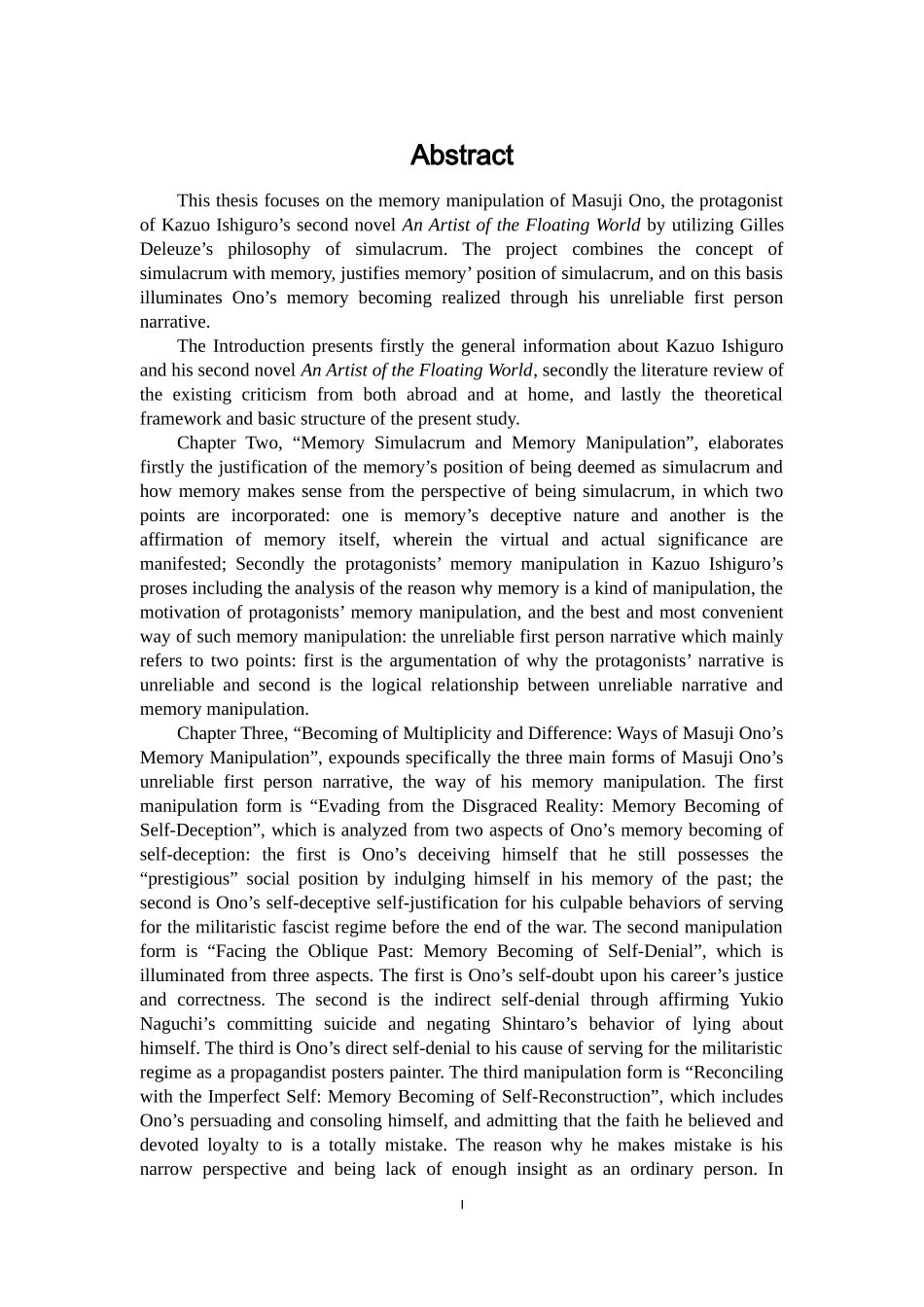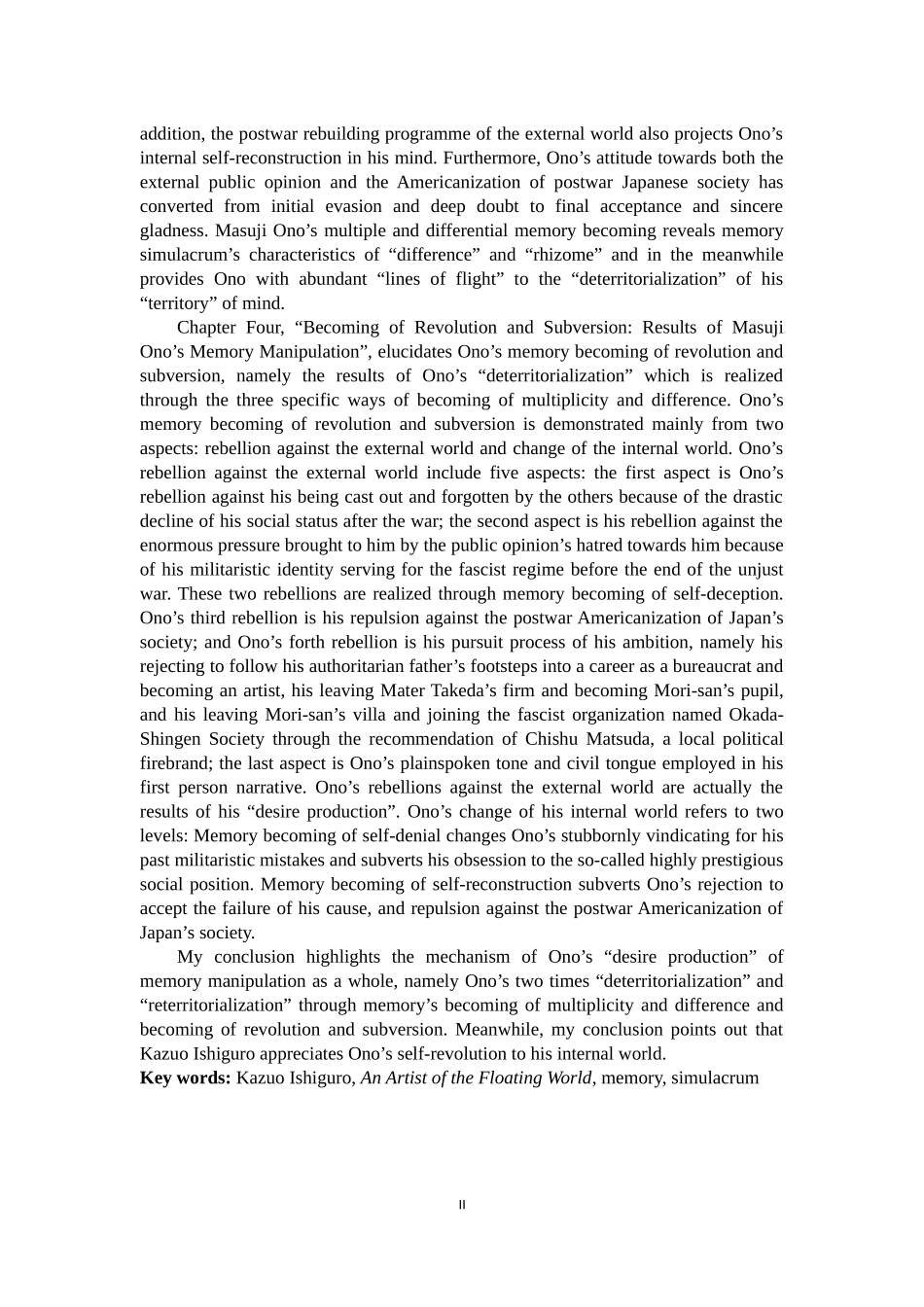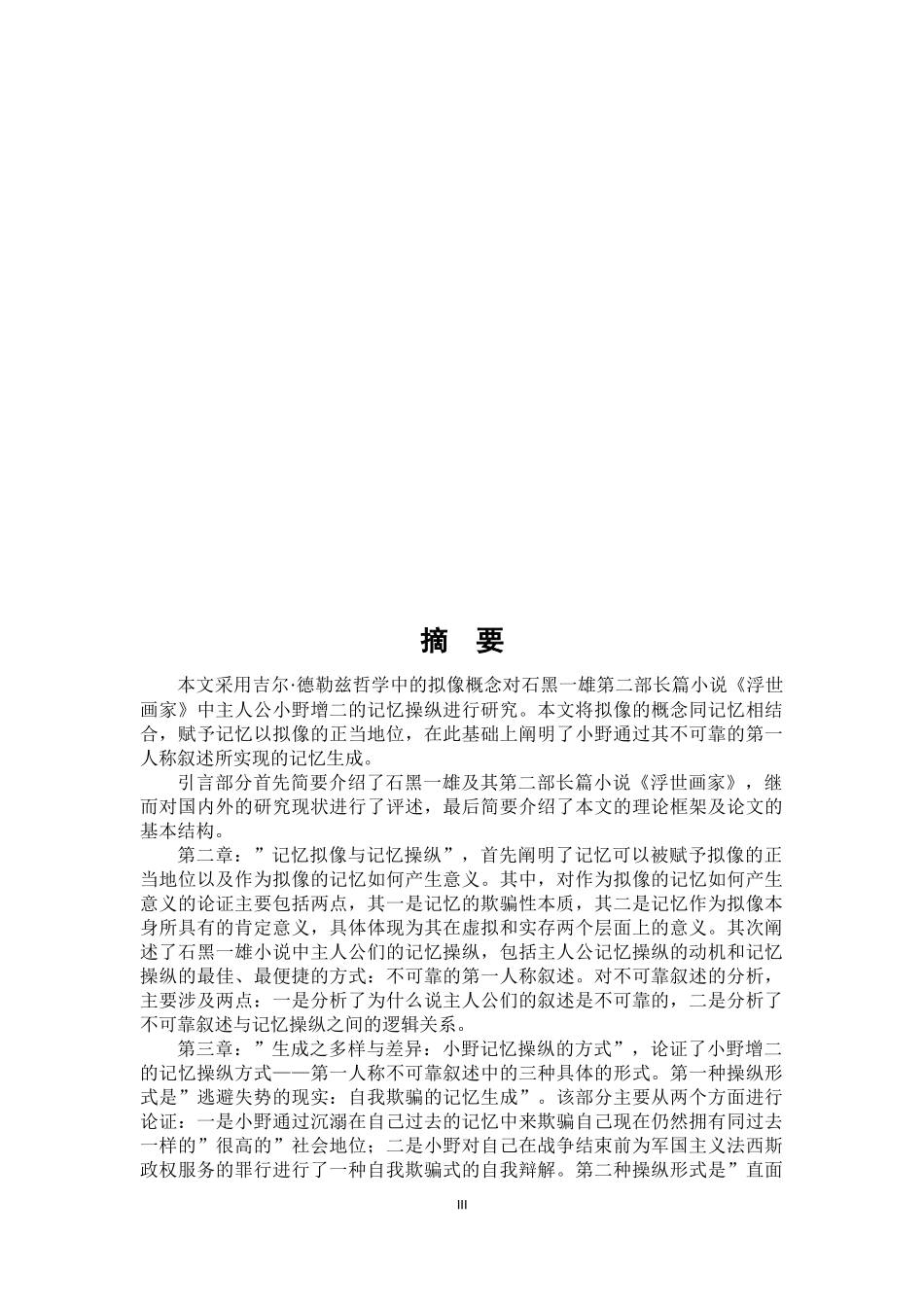AbstractThis thesis focuses on the memory manipulation of Masuji Ono, the protagonist of Kazuo Ishiguro’s second novel An Artist of the Floating World by utilizing Gilles Deleuze’s philosophy of simulacrum. The project combines the concept of simulacrum with memory, justifies memory’ position of simulacrum, and on this basis illuminates Ono’s memory becoming realized through his unreliable first person narrative.The Introduction presents firstly the general information about Kazuo Ishiguro and his second novel An Artist of the Floating World, secondly the literature review of the existing criticism from both abroad and at home, and lastly the theoretical framework and basic structure of the present study.Chapter Two, “Memory Simulacrum and Memory Manipulation”, elaborates firstly the justification of the memory’s position of being deemed as simulacrum and how memory makes sense from the perspective of being simulacrum, in which two points are incorporated: one is memory’s deceptive nature and another is the affirmation of memory itself, wherein the virtual and actual significance are manifested; Secondly the protagonists’ memory manipulation in Kazuo Ishiguro’s proses including the analysis of the reason why memory is a kind of manipulation, the motivation of protagonists’ memory manipulation, and the best and most convenient way of such memory manipulation: the unreliable first person narrative which mainly refers to two points: first is the argumentation of why the protagonists’ narrative is unreliable and second is the logical relationship between unreliable narrative and memory manipulation.Chapter Three, “Becoming of Multiplicity and Difference: Ways of Masuji Ono’s Memory Manipulation”, expounds spec...


